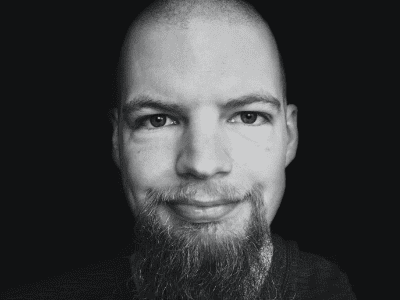Twitter’s API changes go into effect today, and apps like Tweetbot have already begun updating.
Articles by Andrew Orr
Your Tweets Can Help Scientists Map Wildfires
Your tweets can help scientists map the spread of wildfires. Researchers from the U.S. Forest Service published a study [PDF] where they found that—in large numbers—tweets about wildfires can model the way the smoke moves.
If someone #cantbreathe due to smoke, they’re inhaling small particles known as as PM2.5, which measure under five percent the width of human hair. The particles can lodge into the lung tissue and bloodstream and cause health issues, particularly for people with respiratory issues, pregnant women, and children. In extreme conditions, though, the long-term effects can impact others.
How Did Steve Jobs Fake the First iPhone?
Curiosity.com writes about Steve Jobs and the first iPhone. There was a little more to that keynote than meets the eye.
Maybe Wi-Fi Could Replace Invasive TSA Body Searches
Raise your hand if you’ve ever been groped by the TSA. A team of researchers claim that ordinary Wi-Fi can detect weapons and explosives, and maybe it could replace TSA body searches.
The team behind the research tested 15 types of objects and six types of bags. The wi-fi system had success rates of 99% for recognizing dangerous objects, 98% for metal and 95% for liquids. When objects were wrapped inside bags, the accuracy rate dropped to about 90%. The system works by analyzing what happens when wireless signals penetrate and bounce off objects and materials.
Has Your Phone Gotten iPhone 7 Loop Disease?
There seems to be a new epidemic among iPhone users. Called “iPhone 7 loop disease,” it can affect older iPhone 7 and iPhone 7 Plus models.
The Right to Disconnect From Work
In France, the right to disconnect from work has been solidified into law. In the El Khomri law, every employee contract must include a negotiation of obligations required of an employee regarding how connected they are outside of office hours.
A new study has found you may be suffering from excessive stress and anxiety about work expectations even if you don’t actively check work emails in your off-hours. The mere expectation of being in contact 24/7 is enough to increase strain for employees and their families, the new research suggests. In today’s ultra-connected world, with many people often getting work emails sent to their smartphones, a growing number of countries and companies are endorsing “right to disconnect” laws, recreating a much-needed boundary between work and home.
YouPorn AI Generated a List of Future Porn Star Names (SFW)
Last year, YouPorn Foresights used AI to predict what the most popular search terms would be in porn. This year the company did something similar. The data science and machine learning teams trained a recurrent neural network to look at the current most popular performer names, and have now created what science has predicted that the next generation of stars will call themselves. There are 69 names, both male and female, and the results are hilarious. As you would expect from AI, the names sound weird and goofy. My favorite names from the list are Man Master, Al Gorr (obviously my future kid), Summer Sax, and Paris Buttomina. It’s a safe-for-work list that you can check out here.
Apple Supposedly Working on Custom Health Chip
Apple creating its own chips could help it protect its intellectual property, as well as keep it tightly integrated with the rest of the system.
We Shoot Lightning Into Rocks and Metal to Create iPhones
Wired offers a fascinating behind-the-scenes article about the “ultra-pure, super-secret sand” we use to create iPhones.
Spruce Pine, it turns out, is the source of the purest natural quartz—a species of pristine sand—ever found on Earth. This ultra‑elite deposit of silicon dioxide particles plays a key role in manufacturing the silicon used to make computer chips. In fact, there’s an excellent chance the chip that makes your laptop or cell phone work…
Siri on macOS Isn't a Good Feature
I agree with Jeremy Horwitz when he writes that Siri on macOS “barely registers as a feature.” He specifically refers to the Hey Siri functionality though. I’ve used Siri once or twice on my Mac when it first came out, but that’s it.
Apple first added “Hey Siri” — a voice trigger for the assistant — to iOS devices four years ago. Since then, I’ve found that I can consistently rely upon it for basically three things: to tell me the time, to recite the most basic weather when I’m in bed, and to stop or start playback on my office’s infrequently used HomePod. On occasion, I ask it to do more, but frequently have to ignore or manually correct its irritatingly wrong responses.
Voice control is not a good interface for a computer, at least in my life.
Are You Looking For Birth Control? There's Now an App For That
It’s called Natural Cycles, and it uses a woman’s basal body temperatures to determine fertility.
Japan Apple Store in Kyoto Opening on August 25
On August 25 Apple is opening an Apple Store in Kyoto, Japan. It will be the company’s 504th location worldwide and its ninth Japan Apple Store.
Is It Time to Quit Twitter?
Aimée Lutkin wrote that it’s time we all quit Twitter. This Friday, August 17, some Twitter users are organizing a “social media walk out” using the hashtag #DEACTIDAY.
BoingBoing writer Mark Frauenfelder posted that his decision to leave is motivated largely by the platform’s refusal to ban Alex Jones, whom they’ve admitted has violated their official policies. Jones has long been spreading conspiracy theories to his many followers, and has encouraged the continued harassment of parents of Sandy Hook victims.
I tend to agree with Kara Swisher when she wrote, “Rules won’t save Twitter. Values will.”
In a Special Meeting, Apple Encouraged App Subscriptions
Last year, over 30 software developers met in a luxury loft in New York. It was a meeting hosted by Apple about app subscriptions.
The Story Behind Sci-Fi Infographic Untold AI
There’s a sci-fi infographic called Untold AI that examines artificial intelligence, and we now have a behind-the-scenes glimpse from the creator.
Sci-Fi Interfaces is one of those websites the Internet was (originally) built for. It’s a passion project focusing on an incredibly niche subject, created and maintained by someone with real subject matter expertise.
Much of Chris Noessel’s professional work, academic study and enthusiasm for science fiction has come together in the creation of the Untold AI infographic. It’s breathtaking in both its scope, and as a graphic design achievement.
Malware Mouse Clicks Let Hackers Take Over macOS
MacOS gives you the option to Allow or Deny a program’s access to certain features. But what if malware clicked the Allow button itself?
This Watch Wants to Curb Ocean Plastic Pollution
There’s a watch that wants to help curb ocean plastic pollution. Awake Watch’s mission is to prove that there is a smarter and more sustainable way to consume goods. It wants to show that it can create objects with innovative design and very high quality, while still limiting its environmental impact as much as possible. And give people the opportunity to make a difference. The fabric the company uses for the strap is made from plastic waste, which has been collected from South East Asian seas and Japan. It turns the plastic into pellets, and then into nylon yarn. It creates the straps directly from rolls of this material, which is made using no chemical dyes, and is certified by the Global Recycled Standard label. The leather straps are made by a French company that uses Italian leather tanned in a vegetable tanning process. The Kickstarter was fully funded in an hour. To get a watch, rewards start at US$229.
Surprise! Google Tracks You Even With Location History Off
And it doesn’t matter if you have an Android phone or iPhone.
Should Apple Create a Video Platform for Creators?
In 9to5Mac‘s Reddit-esque Change My View series, Ben Lovejoy writes that Apple should have a video platform for creators.
What I’m proposing is that Apple create a platform for creators of original content. Like YouTube or Vimeo, but with greater control and focus…I’d love to see someone do YouTube properly. Take it back to its roots as a true platform for original content providers. And there are two reasons I think Apple could be the right company to do it.
I can’t decide if I agree or not. I don’t think Apple needs to do everything, and if there’s already a size-able contender like YouTube, it would be hard for Apple’s platform to compete. This is similar to why Apple doesn’t have its own search engine. It might be easier for Apple to just buy Vimeo than create a platform from the ground up.
macOS: Don't Forget to Uninstall CrashPlan Home
August 22, 2017 was the last day that new CrashPlan for Home subscriptions were sold, and October 23, 2018 is the last day it is usable at all (even for peer-to-peer backups).
Why are Powerful Women Still Rare in Google Images?
So asks Melissa Locker. When you type in the word “CEO” for example, in Google Images, most of the results you see are men. Women “made up only 11% of the CEOs that show up in a Google Image search.”
Granted, Google Image search results are not frozen in time (they change based on things such as the news cycle, for instance), but the lack of women CEOs in these results raises important questions about the lack of representation of women leaders in media, and how that relates to their lack of representation in the real world.
DNA Encryption Could Someday be a Requirement
To protect our genetic code, DNA encryption might someday become a reality.
Data Could Someday Fuel Most of the Economy
Mark Mills writes that Apple is the new Exxon, and data is the new oil. Although I don’t it’s an apt analogy, he did write an interesting paragraph:
Even though we’re still in early days of digitalization of physical domains, data traffic associated with manufacturing, medicine and consumer “things” is already rivaling traffic associated with multimedia (TV, sports, movies, YouTube, etc.).
It’s something to think about. If technologies like 3D printing, robotics, and others become more ubiquitous, we could be living in a future where data fuels the economy, instead of physical goods.
Siri Database Lists Oddly-Named Small Businesses
It’s easy to ask Siri for directions to Trader Joe’s, Starbucks, and other big businesses. But what about small businesses?




